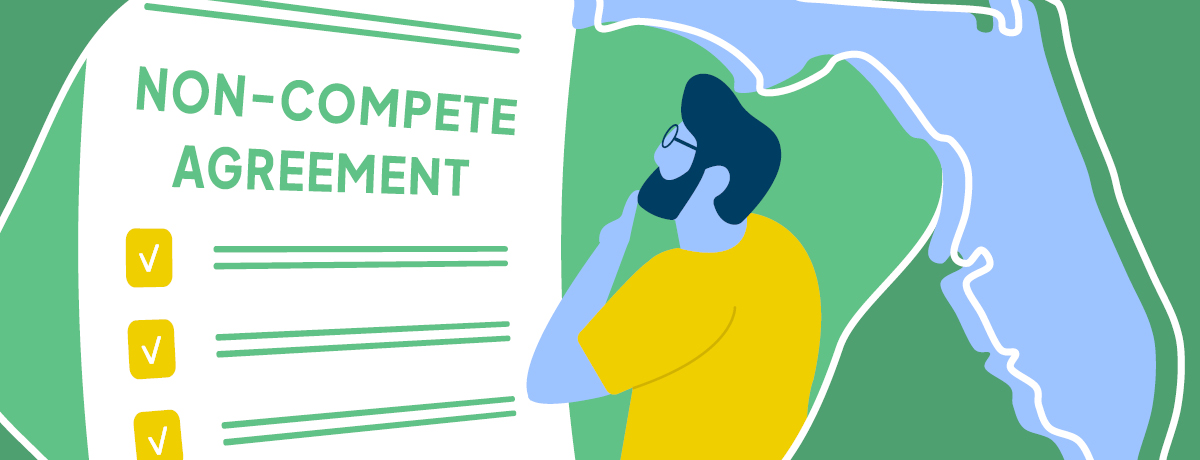The Florida Legislature recently passed the Florida Contracts Honoring Opportunity, Investment, Confidentiality, and Economic Growth (CHOICE) Act, which permits the use of garden leave agreements and places new requirements on noncompete agreements. Both provisions may be enforced through injunctive relief. However, the new law applies only to certain individuals, based on income. If signed by Florida Gov. Ron DeSantis, the law will be effective July 1, 2025.
- Discover how the Florida CHOICE Act reshapes noncompete agreements and garden leave strategies to better serve employers by taking effect on July 1, 2025, pending the governor's approval.
- The Act introduces significant changes, including enforcement through injunctive relief, targeting specific high-earning individuals, excluding healthcare practitioners.
- Unlock insights on how employers can lawfully limit employee mobility with newly defined agreements and reduce potential legal challenges.
- Stay ahead of legal trends—learn how Florida sets itself apart by strengthening employer protections amidst federal efforts to curtail restrictive covenants.
Who Does the Law Apply To?
The proposed legislation applies to two categories of people and businesses:
- Covered Employees: Individuals who either earn or are reasonably expected to earn more than twice the annual mean wage in the Florida county where their employer is based—or in their county of residence if the employer is out of state. Importantly, healthcare practitioners are explicitly excluded from this definition.
- Covered Employers: Any business entity or individual that employs or contracts with a covered employee.
Covered Garden Leave Agreements
The proposed law creates the addition of garden leave agreements as an available avenue to protect business interests. A “covered garden leave agreement” is a written agreement in which:
- The employee and employer agree to a notice period of up to four years before terminating the employment or contractor relationship.
- The employee agrees not to resign during the notice period.
- The employer agrees to continue paying the same salary and benefits during the notice period.
Under the bill, a covered garden leave agreement is fully enforceable according to its terms if it contains these provisions:
- The employee is advised in writing of the right to seek legal counsel before signing.
- The employee acknowledges in writing the receipt of confidential information or customer relationships.
- The agreement includes the following provisions:
- After the first 90 days of the notice period, the employee is not required to provide services.
- The employee may engage in nonwork activities during the remaining period.
- The employee may, with employer permission, work for another employer during the remainder of the notice period.
- The notice period may be shortened with at least 30 days’ advance written notice from the employer.
Covered Noncompete Agreements
Florida law currently permits noncompete agreements, however, the new law would create sweeping changes in favor of the employer. The bill defines a “covered noncompete agreement” as a written contract between a covered employer and covered employee that limits the employee’s future employment for up to four years within a defined geographic area. Previously, a noncompete that exceeded a two-year duration was presumed unreasonable in Florida.
Also under the bill, employers will have more success in enforcing a noncompete since it eliminates the previous requirement that employers demonstrate a “legitimate business interest” justifying the restraint. Under the new law, a covered noncompete agreement is fully enforceable according to its terms if it contains these provisions:
- A covered employee was advised, in writing, of the right to seek counsel before execution of the covered noncompete agreement and was provided notice;
- A covered employee acknowledges, in writing, that in the course of his or her employment, the covered employee will receive confidential information or customer relationships; and
- A covered noncompete agreement provides that the noncompete period is reduced day-for-day by any nonworking portion of the notice period, pursuant to a covered garden leave agreement between the covered employee and the covered employer, if applicable.
Proposed Agreements Will Require Notice
For both proposed noncompete agreements and garden leave agreements, an employer must provide seven days’ notice before an offer of employment expires to give the employee time to review. A current employee must also be given seven days’ notice before the offer to enter into the agreement expires.
How Are These Agreements Enforced?
The CHOICE Act can be enforced by injunctive relief. Employers can seek to enjoin an employee from providing services to another business, entity, or individual. The burden then shifts to the employee to have the injunction either dissolved or modified. The employee must show that:
(1) The employee did not perform, during the noncompete period, any similar work to the services provided to the employer or use confidential information or customer relationships of the employer; and
(2) The employer failed to pay the salary benefits required under the garden leave provision during the notice period and had a reasonable opportunity to cure.
If the injunction is pursuant to a noncompete agreement, the employee must additionally show that the business, entity, or individual seeking to employ the employee is not planning to engage in similar activity as the previous employer and in the geographic area described in the agreement.
How Would the New Law Affect the Old Law?
This new law would not replace the existing framework provided in Fla. Stat. § 542.18 but would be a supplementation. If an agreement fits within the new provisions, the new law would apply. However, if an agreement does not meet the requirements of the new law, the current statute would apply.
Conclusion
Florida’s CHOICE Act is a departure from the recent federal attempts toward curbing or outright banning noncompete agreements. While the Federal Trade Commission and other agencies pursue efforts to limit the use of restrictive covenants in the name of labor mobility and market competition, Florida is signaling a firm commitment to providing more certainty to employers seeking to enforce a noncompete agreement. Florida’s CHOICE Act positions Florida as a jurisdiction where employers can continue to rely on noncompete agreements as a legitimate tool for safeguarding business interests.
--
Jones Foster litigation shareholder Michael J. Gore, LL.M., concentrates his practice in the areas of employment, construction, and securities law and has significant experience handling a wide variety of complex litigation matters. Jones Foster attorney Dallas F. Dorosy is a member of the firm’s Complex Litigation and Dispute Resolution practice group and represents businesses and individuals in a wide range of commercial litigation matters.



























